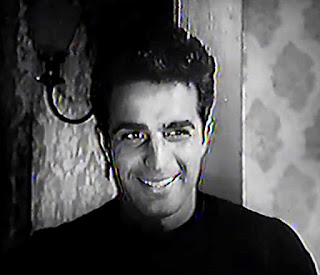 |
| Rod Steiger: lover boy? |
43-year-old serial cheater Steve Howard (Rod Steiger) works in sales and goes off on frequent business trips. On one of these he picks up 19-year-old Ella (Judy Geeson of Berserk), a free-living, promiscuous, borderline hooker, installs her in a nearby hotel, and sleeps with her. Steve wants to keep seeing Ella -- no wonder! -- but then she shows up at his house when he's away and becomes friends with his wife, Frances (Claire Bloom). Frances buys Ella's story, takes pity on her, and invites her to stay in the guestroom. Then Ella announces to all that she is pregnant -- with Steve's child! Three Into Two Won't Go is halfway between a trashy exploitation picture and a serious marital drama and doesn't quite work as either, although the acting by all three leads helps put it over. Bloom [The Chapman Report] and Steiger [The Sergeant] were a real-life married couple at the time of filming although they were divorced this very year (after ten years), which may be why they don't quite come off as a realistic match in the picture. Or maybe it was Steiger's unappealing semi-nude scenes! Peggy Ashcroft certainly scores as France's mother, Belle, whom Frances brings home from a retirement village. One gets the feeling that the more interesting parts of the story happened after the end of the picture, and a lot is left unsaid.
Verdict: Several excellent performances help create a fairly interesting and not bad picture. ***.























